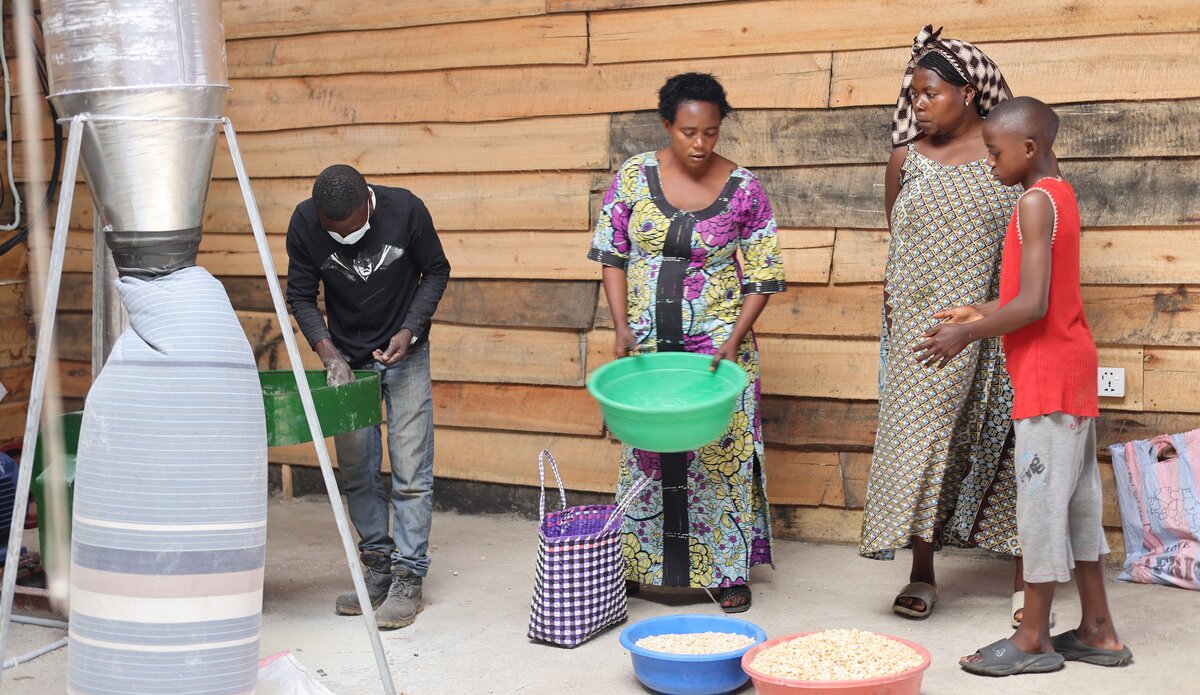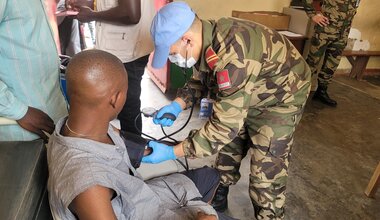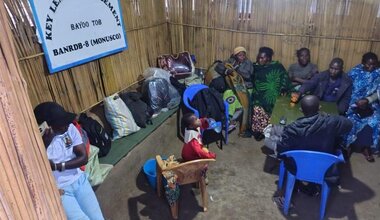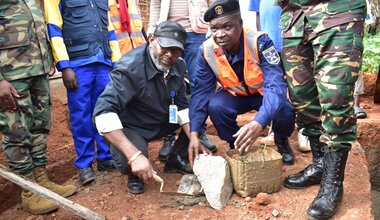Hairdressers, bakers, mechanics: 200 young people affected by conflicts reintegrated thanks to MONUSCO in Munigi
« Thanks to this training, I was able to open a hair salon with other young people. We work together and we share the income. Today, I can contribute to my family's needs. ».
Patrick* is a former child soldier who currently works as a hairdresser in Munigi. He is part of the two hundred young people affected by armed conflict who benefited from the project initiated by MONUSCO, in partnership with the NGO Program to Support the Fight Against Poverty (PAMI), to prevent community violence through youth reintegration in the territory of Nyiragongo, in North Kivu.
Officially launched in July 2024 for an initial duration of six months (extended due to security challenges), the project was funded at 96,443 US dollars by MONUSCO. A local contribution of about 15,000 dollars was also mobilized.
The project enabled training of these young people in hairdressing, mechanics, baking and culinary arts, braiding, basket weaving, for three months.
It is thanks to this training that Patrick and his comrades can today welcome clients in their hair salon.

After their training, the young people received what they needed to immediately launch income-generating activities. They were grouped into production units or village economic associations (AVEC) to facilitate their empowerment and mutual aid. The project also includes psychosocial support and community awareness.
«First come, first served at the mill...»
On August 19, 2025, one of the most visible aspects of the project was inaugurated in Buhima, a village in the Munigi grouping: the first community grain mill. It runs on electricity and now allows the local population to grind corn or cassava without having to travel long distances, as was previously the case. "I am delighted because before I had to walk more than 4 kilometers to go grind my grain. Today, the mill is located in my immediate neighborhood and that relieves me physically." explains Florida Soki, a village resident.
Beyond its immediate food utility, this mill has also facilitated access to electricity in the surrounding neighborhood. This has encouraged several families to start building or improving their homes.
Less community tensions
Beyond the economic impact, the project has produced positive effects on social cohesion in this area once plagued by community tensions.
Before the project's launch, tensions between communities, particularly between the localities of Buvira and Munigi, were frequent. Today, thanks to joint agricultural activities, bridges have been created between populations.
"This project has enabled rapprochement between communities. Now, parents from different community origins cultivate together. It's real progress toward peace." affirms Clément Bavukahe Ntaboba, national coordinator of the NGO PAMI.
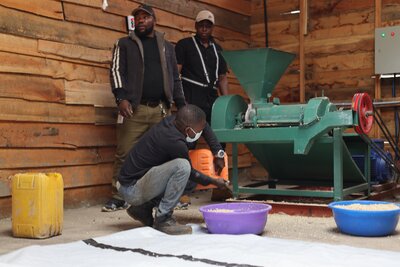
Awareness sessions led by MONUSCO and UNICEF have also facilitated the demobilization of several children associated with armed groups. These children, after being reunified with their families thanks to MONUSCO's DDR-S program, were able to benefit from specific support: schooling, psychosocial follow-up and integration into training programs.
Educational dimension
The project was not limited to income-generating activities. It also enabled the schooling of 50 reintegrated children in five schools in Nyiragongo territory. In parallel, 50 parents were trained in managing income-generating activities and received support to launch their own economic activities. This mechanism ensures continuity in children's school care. "Thanks to PAMI's support, I was able to restart my weaving activity. Today, I don't have difficulties buying the school supplies my child needs," explains a mother who benefited from the project.
The project has also enabled giving hope back to many girls who were victims of sexual violence or came from armed groups. By participating in training, they gained autonomy and self-esteem. "Before, I spent my days in idleness. Today, thanks to baking training, I earn money and I am respected in my community," testifies Divine*, a young beneficiary.
In the baking sector, for example, more than 40 young girls learned to prepare donuts, crepes, cakes and other products. Thanks to the kit provided by the project, they now sell their products in local markets.
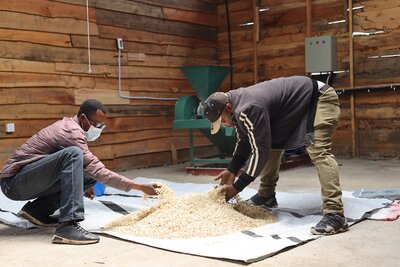
Sustainable reintegration
To ensure project continuity beyond its funding, PAMI has established local management committees. Each production unit has an organized structure (president, treasurer, advisor), and maintenance mechanisms have been established, particularly for the mill. The community participates financially in its upkeep, thus ensuring its sustainability. "The beneficiaries already manage themselves. We wanted to teach them to fly with their own wings. They are now capable of continuing their activities without depending on external aid," explains Clément Bavukahe.
Faced with general enthusiasm and the positive impact already observed in targeted areas, PAMI NGO officials call for expanding the project to other localities in Nyiragongo territory. "We limited our intervention to 200 beneficiaries, for lack of means. However, the needs are immense. Hundreds of other young people are waiting for an opportunity. That's why we call on MONUSCO and other partners to strengthen their support," concludes Mr. Bavukahe.
For more than a decade, Nyiragongo territory has faced chronic instability due to the presence of armed groups. Thousands of families have been displaced and many children forcibly recruited into armed groups. Between 2024 and 2025, the resurgence of fighting linked to the revival of the M23 rebel movement has accentuated the vulnerability of the local population, particularly children and young people.
*Patrick and Divine are assumed names.

 UN
UN United Nations Peacekeeping
United Nations Peacekeeping
